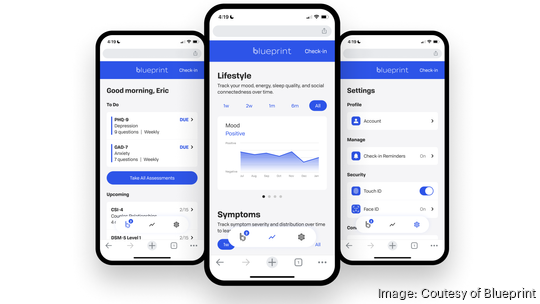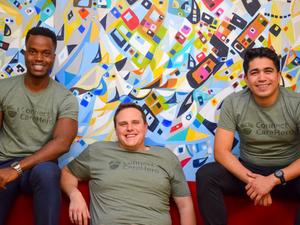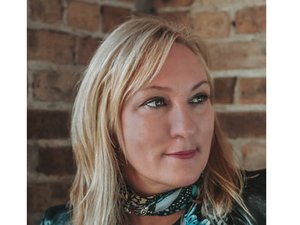
Virtual mental health startup Blueprint has raised new funding to change the status quo when it comes to mental health treatment.
The Chicago startup announced this week that it raised $9 million in a Series A round led by Ensemble VC and Lightbank, with participation from Bonfire Ventures, Revolution's Rise of the Rest Seed Fund, TAU Ventures, Data Tech Fund and select angel investors.
Instead of being based on subjective assessment and trial-and-error treatment, Blueprint wants to use the data it accumulates to help clinicians find the best treatment plan for their patients.
It's a personal issue for founder Danny Freed, whose interest in the mental health care space dates back about 10 years to when he lost one of his best friends who had bipolar disorder.
"He was seeing therapists, he was seeing psychiatrists, and at the end of the day, that access didn't matter. Treatment didn't work, and he died by suicide between appointments," Freed told Chicago Inno. "My friend's story wasn't unique. Suicide is now among one of the leading causes of death in the U.S."
Freed said that only 13% of patients with access to mental health care actually achieve lasting improvement.
Blueprint gathers critical data points from patients related to things like symptoms and exercise, and uses them to generate what it calls a "blueprint" for clinicians that charts how patients are progressing, provides guidance and writes progress reports, saving hours of administrative work.
Blueprint's software aims to deliver insights to clinicians to arm them with the information they need to decide the best treatment path for every patient.
Moving forward, Blueprint is leaning into building out an AI layer to its platform.
"Now with all the great advancements in AI and machine learning over the last couple of months, it allows us to do that more effectively," Freed said.
The startup has helped more than 4,500 clinicians across the U.S. provide the best care based on data to more than 180,000 patients while also seeing a 44% faster response to treatment.






